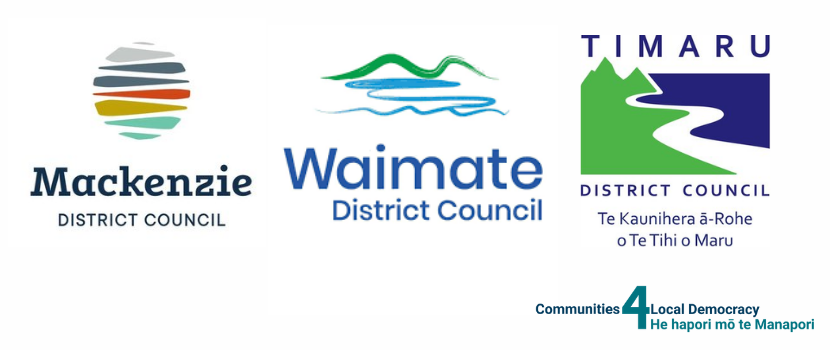28 Jun 2023
#INFRASTRUCTURE MATTERS
South Canterbury Mayors have rejected the Government’s Three Waters reset, saying it’s just the same reform with a different name.
Mackenzie Mayor Anne Munro, Timaru District Mayor Nigel Bowen and Waimate District Mayor Craig Rowley were briefed on the changes this morning prior to the release of the policy.
Both councils will have their water assets stripped away and vested in a new water company covering Canterbury, The West Coast and parts of Tasman and Marlborough Districts.
Each council will have one seat with 14 councils on a Regional Representative Group of around 28, who will choose the board of the new water companies.
Waimate District Council Mayor Craig Rowley said the reset didn’t address any of his concerns.
“Nothing has changed, the collateral damage of these reforms goes well beyond the expropriation of assets and loss of local democracy,” he said.
“Rural and provincial councils are among the most important institutions in their district. We are accountable to, belong to, and anchored in our communities, nothing like what is proposed here.”
Timaru District Mayor Nigel Bowen said that a name change and a tweak to the boundaries didn’t disguise the fact this was the same reform proposed all along.
“While it may have a new name and a few new entities, at its core this is the same Three Waters that has been overwhelmingly rejected by our community,” he said.
“Good water services are the lifeblood of our economy and this reform still strips it out of the hands of the communities that had built it.
“While we may be guaranteed a seat on the regional representation group, it will be one of nearly thirty others two steps separated from any real influence.
“We had hoped the reset was the opportunity for community led water reform, but one again it’s just a case of Wellington thinking it knows what’s best for South Canterbury.”
Mackenzie District Mayor Anne Munro said that no real substantive changes had been made that addressed the fundamental concerns
“The number of entities have increased and the Better Off Funding for communities - a total of $1.5 billion - has been taken off the table.
“The changes do not address the way in which the reform agenda has been driven from Wellington, placing Council teams under pressure with no clear certainty for water staff about their future.
“It does not address the excessive amount of resources expended in driving this agenda at pace.
“The real issues remain – ongoing improvement in infrastructure stymied due to funding constraints, assets being expropriated without compensation and no real property rights over these assets.
“The real solution should be locally led and locally informed.”
